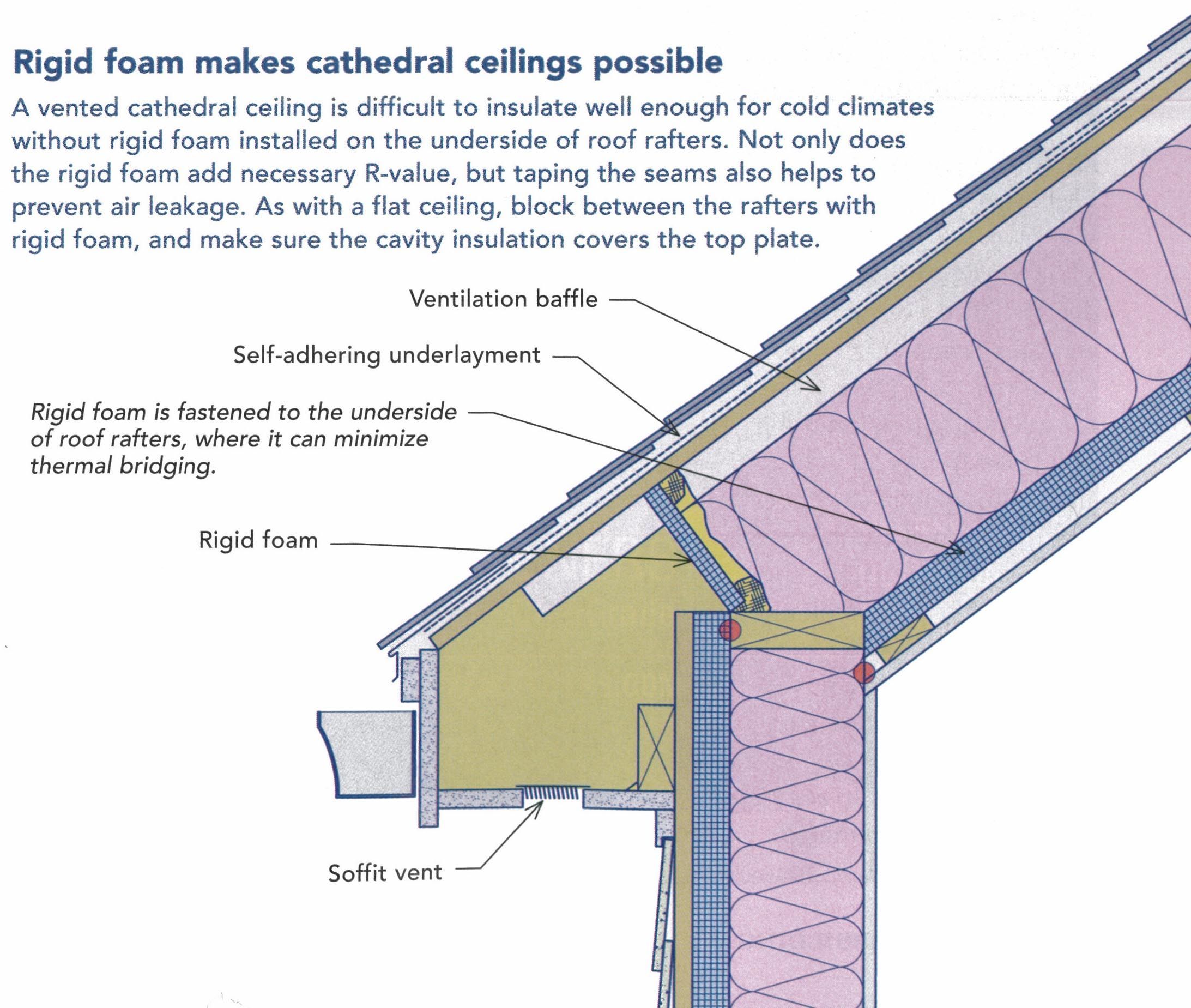Unvented roof assemblies should be insulated either with air impermeable insulation rigid foam or spray polyurethane foam or with a combination of foam and air permeable insulation.
Unvented flat roof assembly.
Recent building codes only allow unvented roof assemblies for pitches 3 12 and greater irc 2015 section r806 5 2 7.
By installing spf insulation spray in place insulation in lieu of mineral fiber insulation in the joist cavity of a flat roof or between rafters of a cathedral ceiling the assembly may perform the same as or better than that of a typical one and venting can be shown to be unnecessary.
An unvented roof assembly is constructed without any ventilation and is fully sealed on all sides and filled with insulation.
In some climates it requires a vapor barrier.
However architects of these compact roof assemblies must consider vapor permeance and arrangement of the materials to produce acceptable hygrothermal performance and low risk of condensation in the resulting conditioned attic space.
Condensing surface temperature controlled the thickness of the rigid insulation at both the roof deck and perimeter is determined by a calculation procedure similar to figure 5.
The colder the climate the thicker the rigid insulation required.
It s not and so code doesn t require r value ratios.
Martin s post focuses on the marketing of owens corning 039 s propink unvented attic insulation system.
Yes unvented roof assemblies can be insulated with fiberglass a wufi post and not just in climate zones 2b amp.
Figure 6 describes open cell spray foam as air permeable.
The higher the interior moisture level the thicker the rigid insulation required.
Read all of r806 5 carefully.
If you don t want to use sips or nailbase there are four basic approaches.
Drying of unvented roofing assemblies is by definition only provided to the interior.
Unvented roof assemblies such as conditioned attics and unvented cathedral ceilings are becoming common in north american construction.
These assemblies are created by eliminating ventilation openings and moving the thermal moisture and air control boundaries to the plane of the roof deck.
Low slope and steep slope unvented roof systems i e.
Insulation and air barrier are applied directly to the underside of the roof deck are common in applications where designers are seeking cost effective and energy efficient roof assemblies.
In unvented flat or low slope roofs with parapets perform a full flood test to ensure leak free installation of roofing membrane.
Four options for building an unvented roof assembly.
There is absolutely no room for error in the detailing and installation of roofing and air sealing in these assemblies.
Sc historically typical construction of homes in canada and the us have vented attics between the ceiling of the interior space and the roof.
This is a mis interpretation of the code.





























